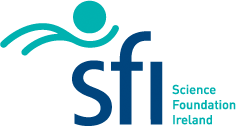




Total: 48 grants as PI worth ca. €30M between 1995-2019.
SFI Infrastructure Award, Light Sheet Fluorescence Microscope (LSFM) for imaging of live and optically cleared biological samples, Duration:01/2017-12/2018 Role: PI;
480,605.00
SFI-Pfizer Biotherapeutics Innovation Award Programme 2014, [Protein] delivery for the treatment of MND. Role: PI; Duration: 10/14 – 09/17. Value of award to PI:
€399k
SFI Investigator Award, BCL-2 family proteins and cellular bioenergetics in the
control of cell survival: Role: PI; Duration: 07/14 – 06/18. Value of award to PI:
€1.7M
EpiMiRNA, EU-FP7 Collaborative Project, Role: PI, 2013-18, €410,261 (Project total
€11.6 Mi) ID: 602130
SFI Research Centre FUTURE-NEURO , Role: Co-Applicant ; Duration: 01/10/17-
30/09/22. Total value of grant: €8m.
“Neuro-Mir”, SFI / CoEN Award, Role: Coordinator; Duration 01/11/ 13 – 1/11/15,
Total value of award €0.7M; Value of award to PI €191,399K
Description of some of the funded projects:
Science Foundation Ireland:
Campus Industry Partnership to establish the Centre for Human Protemics:
In May 2003 Science Foundation Ireland awarded a grant of 13.5m to establish the Centre for Human Proteomics on the RCSI main campus. The Centre was funded as a Science Foundation Ireland (SFI) Centre for Science Engineering and Technology under a programme to establish campus-industry partnerships. The original aim of the Centre was to combine leading edge technology with world-class scientists to focus on the identification and characterisation of proteins involved in cardiovascular and other diseases to aid in the development of new pharmaceuticals and therapies.
Research Frontiers Program
Principal Investigator: Dr. Markus Rehm.
This project examines the Intracellular caspase activation profiles in response to chemotherapeutic drugs: role of caspase-2
Health Research Board:
Translational Award: APOCOLON Principal Investigator: Prof. Jochen Prehn
Co-applicants: Elaine Kay, Patrick Johnsoton and Bryan Henessy
The APOCOLON project focuses on the role of defective apoptosis signalling in tumor resistance, and builds on the expertise of the CHP-SM in understanding apoptosis resistance at a qualitative and quantitative. The overall aim of this translational project is to provide new prognostic tools for Colorectal Cancer and to guide in the choice and evaluation of new adjuvant treatment paradigms.
Health Research Awards-Clinical validation of a minimally invasive serum test based on tumour-associated antigens for the diagnosis of colorectal cancer, allowing for prioritization of patients in need of colonoscopy
Principal Investigator: Prof. Jochen Prehn
In this project, the aim is to clinically validate a reverse ELISA-based assay developed in our laboratory which indicates the presence of auto-antibodies to these tumour-associated antigens in the serum of CRC patients.
HRB Scholars Programmes: Diagnostics and Therapeutics for Human Disease
The aim of the HRB scholars programme is to improve the quality of PhD training in health research by facilitating a broader education for young researchers, and enhancing co-operation between post-graduate students in different research groups. The prgramme research areas are Cancer Biology, Molecular Medicine, Health Services Research, Neuroscience, Immunology and Diagnostics and Therapeutics for Human Disease. Within RCSI, The PhD Scholars Diagnostics and Therapeutics for Human Disease programme brings together the complementary skills of researchers from Royal College of Surgeons in Ireland, Beaumont Hospital and Dublin City University. There are 7 research themes in this programme, led by Principal Investigators of international standing. The 8 leading Principal Investigators also make up the steering committee, which is responsible for the governing of the programme. The research themes are as follows:
- Respiratory Disease and Innate Immunity – Professor Gerald McElvaney
- Neuro/Psychiatric Disorders – Professor Jochen Prehn
- Molecular Endocrinology and Cancer – Professor Elaine Kay and Professor Brian Harvey
- Cardiovascular Disease – Professor Niamh Moran
- Bioengineering and Regenerative Medicine – Professor Clive Lee
- Biomedical Diagnostics – Professor Richard O’Kennedy
- Structure Based Drug Design and Development – Professor Kevin B. Nolan
For More information please see the following page.
NBIP National Biophotonics and Imaging Platform Ireland (NBIPI) a trans-institutional research infrastructure programme funded through the Irish Higher Education Authority (HEA) under Cycle 4 of the PRTLI programme
DP1: Apoptosis and Cancer: Apoptotic signalling through Bcl-2 family members.
Lead Investigator: Prof. Jochen Prehn
Objectives of the program:The main objectives of this program is to deliver new insights into the temporal and spatial dynamics of Bcl-2 family protein activation and interaction at the single cell and single molecule level, employing established GFP imaging, FRAP and FRET imaging, as well as novel FCCS and FLIM techniques. Using these data sets, it will quantitatively test and validate new computational models and hypothesis that will feed into the APOCOLON study.
ITC-2: ALISSA – Automated Live-Cell Imaging System for Signal Transduction Analysis.
Lead Investigator: Dr. Heinrich Huber
Live cell imaging and fluorescent microscopy allow us to investigate cellular physiology and study cellular signal transduction in response to stimuli in-vivo and in real time. However, they require significant investment in time and effort in data handling. Moreover, cellular events during measurement often happen spontaneously after a long time, but then proceed rapidly upon initiation. This not only poses tedious workload to the researcher, but often results in the overlooking of interesting events. In an Irish inter-university NBIP collaboration between RCSI and the National University of Ireland, Maynooth, the ITC-2 project team established ALISSA – an automated live-cell imaging system for signal transduction analyses. ALISSA allows the detection of intra-cellular events indicated by changes of fluorescence intensities. This was subsequently employed to exercise control over confocal microscopes in order to change modalities of image acquisition like sampling time or to use additional laser resources.
Clinician Scientist Fellowship Programme-CSFP
In September 2007, the Higher Education Authority awarded funding under the Programme for Research in Third Level Institutions (Cycle 4) for a Clinician Scientist Fellowship Programme (CSFP) in translational medical research to be coordinated by Molecular Medicine Ireland. The objective of the CSFP is to train the next generation of clinician scientists (academic medical leaders) with the unique and specialised knowledge essential to fulfil Ireland’s research needs in translation medicine.
Apoptosis resistance of colorectal cancer stem cells: A translational study
Principal Investigators: Prof Jochen Prehn and Prof. Frank Murray Awarded: Ms. Mary Cannon
The project focuses on the role of defective apoptosis signalling in CRC stem cells which are believed to have a high resistance to apoptosis-inducing stimuli. It builds on the expertise of the Departments of Physiology and Pathology in the areas of apoptosis resistance and cytopathology. It examines the hypothesis that the response of CRC stem cells to radiochemotherapy may predict tumour responsiveness in patients presenting with colorectal adenocarcinomas and hence predict clinical outcome. The projects main focus is on the role of apoptosis signalling in CRC tumour stem cells which are believed to have a very high resistance to apoptosis-inducing treatments.
BioAT
BioAT is a collaborative inter-institutional 4-year structured PhD programme funded by the HEA under Cycle 5 of the Programme for Research in Third-Level Institutions (PRTLI). It brings together the complementary expertise of researchers from the Royal College of Surgeons in Ireland, Dublin City University, National University of Ireland, Maynooth and Institute of Technology, Tallaght. Applications are now invited from students in the Biomedical, Chemical, Physical or Engineering Sciences currently holding or expecting a first or upper second class honours degree. The programme offers students a unique training and educational experience in basic and applied research, advanced technologies, and collaborative clinician-scientist research in hospital-based laboratories (Beaumont and Connolly Hospitals, and the Children’s Research Centre at Crumlin Hospital).
Euopean Commission:
APOSYS EU-FP7: Collaborative Project (Large-scale integrating project)- April 2007., 24 partners.
Prinicipal Investigator RCSI: Prof. Jochen Prehn
APO-SYS: Apoptosis systems biology applied to cancer and AIDS. An integrated approach of experimental biology, data mining, mathematical modelling, biostatistics, systems engineering and molecular medicine
The main aim of this project is to developing an integrated in vitro, in vivo and systems biology modelling approach to understanding apoptosis in the context of health and disease. The principal objectives of this consortium is to understand the basic cell biology of apoptosis and to transform this knowledge into computer models of the relevant biological processes and to translate the resulting knowledge to two major pathological conditions, namely cancer and AIDS. With this goal in mind, a Europe-wide consortium of experimental biologists, biomathematicians, biostatisticians, computer scientists and clinical scientists will team up to approach cell death pathways in health and disease.
Career Enhancement Mobility Programme- CEMP Award: Dr. Tytus Bernas
This is a postdoctoral fellowship programme which is co-funded by the EU FP7 MarieCurie Co-fund Scheme, the Irish Higher Education Authority Programme for Third Level Institutions Cycle 4 and the Italian National Research Council. The aim of CEMP is to support experienced research fellows at various stages of their career in attaining and strengthening their career prospects to become independent investigators or senior scientists in education or industry. Within the remit of NBIP, the CEMP funds and supports research fellows undertaking interdisciplinary research and training programmes in biophotonics and imaging applied to cancer, cardiovascular and neuro-degenerative diseases Dr. Tytus Bernas was a reciepient of the CEMP fellowship. He is a research engineer and co-director of the Molecular and Cell Imaging Core at RCSI who is funded through the National Biophotonics and Imaging Platform (NBIP). Dr. Bernas has in excess of 10 years experience in training, imaging and microscopy. The Molecular and Cell Imaging Core facility provides training in basic epi-fluorescence and confocal microscopy applications, image processing, and advanced live cell imaging.
AngioTox
AngioTox is an EU FP7-funded IAPP project integrating expertise in biomarker discovery, histopathology, multi-modality in vivo imaging and automated image analysis.The AngioTox Consortium was established in 2010 to mechanistically assess the toxicities associated with the use of angiogenesis inhibitors for the treatment of cancer. The ultimate goal of this consortium is to identify an AngioTox Safety Panel of toxicologic markers to facilitate improved screening of angiogenesis inhibitor toxicologic parameters, inform clinical drug dosing regimens, facilitate the development of more specific and potent angiogenesis inhibitors and significantly improve patient care.
OXY-SENSE
A biosensor, image analysis, and work flow system platform for
the study of neuronal injury and assessment of cellular bioenergetics
An EU FP7 Marie Curie Industry-Academia Partnerships and Pathways (IAPP)
funded programme launched in 2009. The activities of OXY-SENSE are led through Professor Jochen Prehn, a Science Foundation Ireland Research Professor from the Royal College of Surgeons in Ireland and involve the following institutions and industrial partners across
Europe: Luxcel, Cork, Ireland; Siemens, Vienna, Austria; Ludwigs Maximilians University, Munich, Germany. The goals of the project is to 1) create a mutually
beneficial partnership that allows for the effective transfer of knowledge
between academia and Industry 2) establish a network of excellence in mitochondrial biology and oxygen sensor research that performs world class research into neurological disorders and develops new discovery tools and industrial solutions for a European and global market, and finally 3) through definition of the role of oxygen utilization within the injured and diseased brain to provide new targets and areas for
therapeutic intervention.



